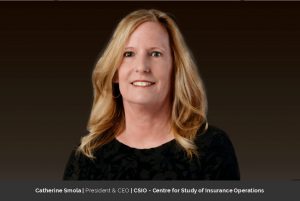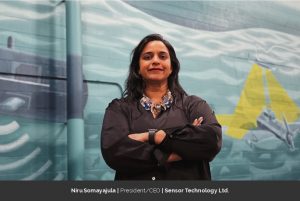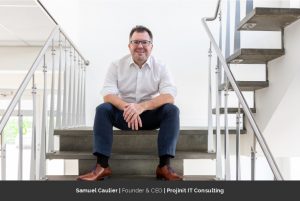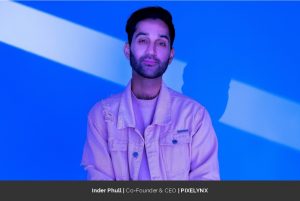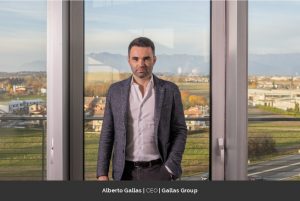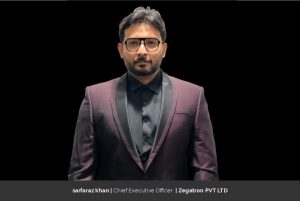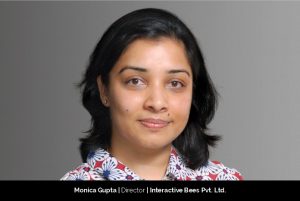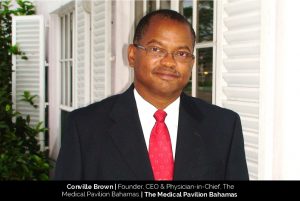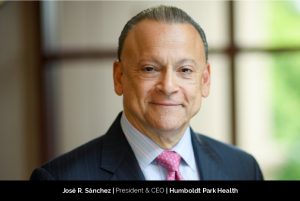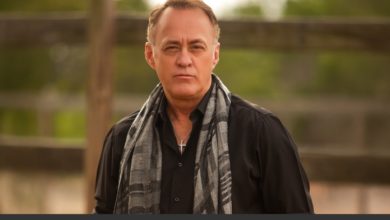Francesco Bonfiglio: Leading Europe’s Fastest Growing Cloud Tech Association
The 10 Most Futuristic Business Leaders to Follow in 2022
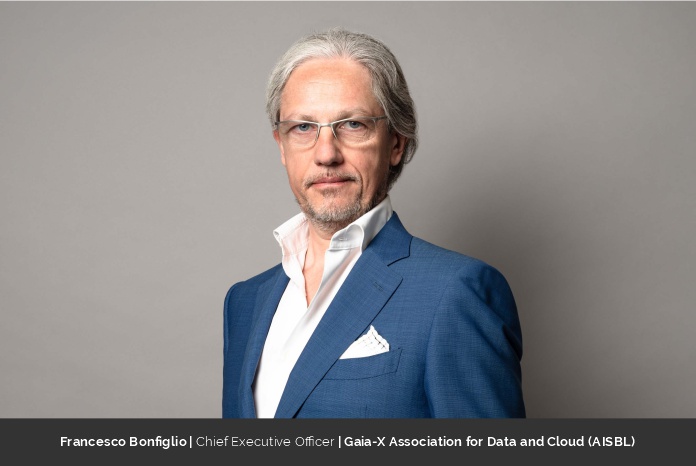
Doing
something cool is not innovation. Doing something in a new way or doing
something you have not done before is what innovation is all about. As a
result, the sole criteria for measuring innovation are the benefits generated.
At the same time, and perhaps more importantly, innovation never comes for free
– if calculating the return on investment from innovation was simple, everyone
would be doing it (it isn’t, and it requires vision, commitment, and the
willingness to fail) – and it never comes from the inside – you cannot see the
need for innovation from within an organisation until it becomes an emergency,
Francesco Bonfiglio confirms. You must look outside or be willing to be altered
by someone outside, or you must be completely self-sufficient.
According
to Francesco Bonfiglio, innovation is critical for every business, but few
organisations do it since it weakens the power of existing hierarchies that
should be empowered to promote innovation. He says, “We need completely
new organisational models to enable innovation in an organic way.”
As the new
CEO of Gaia-X, Francesco Bonfiglio joined the association almost two years
back. Formerly the CEO of Engineering D.HUB, an Italian leader in Cloud and
Digital Transformation Services, the Co-Founder of FoolFarm.com, an AI-centric
Startup Studio, and the VP of Confindustria (Italian Trade Association),
Francesco has over 30 years of IT experience and has held executive positions
at multinational companies, such as CTO at HP, VP at Avanade, SW Factory Director
at Unisys Global, and Technical Director at Rational-Software.
A New
Generation Data Platform
Gaia-X is a
not-for-profit organisation with over 350 members from Europe and beyond who
are all working toward the same goal: creating a new generation of trustworthy
technology platforms to allow for a fair and prosperous data economy in Europe.
The team grasped the AsIs’ difficulty and developed the ToBe’s requirements for
a better future. Gaia-X will produce a set of services that can be plugged into
existing cloud technologies to create trusted platforms, i.e., platforms where
data can be exchanged between parties in a secure, transparent, and
controllable by the user manner, thus reducing our reliance on opaque black,
boxed non-verifiable and non-interoperable platforms controlled by private or
state-owned entities, on which our economy and lives are currently completely
dependent.
As
Francesco sees, “Gaia-X has a unique approach and nothing like it
exists or has been done before“.
He highlights that the reason for this is that there has been
a lack of knowledge of the cloud’s potential, as well as the amount of
dependency posed by digital technology.
He
continues that “cloud technology,
first and foremost, is now at the heart of every digital solution, from the
apps on our smartphones to the software that runs the gas, water, and power
utilities that keep our homes afloat”.
The epidemic heightened the sense of the digitalisation urgency, meanwhile, the
Gaia-X project had begun, and Europe had announced its desire to develop a new
digital strategy to become sovereign and in control of technology platforms.
What Gaia-X wants to do is bring a new generation of digital services to the
market that will be digitally sovereign in terms of transparency, controllability,
and interoperability, hence allowing users for the first time to see what they
are using, who’s treating and storing their data; ensuring they follow our (not
their privately defined) rules, and maintaining the freedom of choice that any
free market of goods and economy requires and deserves.
Gaia-X will
enable the next generation of cloud infrastructure to be distributed
(because data is distributed), federated (to interconnect across the
nodes, where data is generated), autonomous (through decentralised
compliance services and the modern concept of distributed consensus), and open
to anyone who wants to follow the rules and become transparent, controllable,
and comparable to others.
The result
will be an increase in cloud usage to generate value through the establishment
of common data spaces, which are locations, where many players in a value chain
may exchange data with one another, according to commonly agreed terms and
rules, to take each of the advantages of the other’s data and create jointly new
value. In this way, to make an example, healthcare data from patients to
hospitals, laboratories, and research institutions will not need to be
transferred but will be available to all participants in a federation of
healthcare data across Europe, creating value for all actors involved,
accelerating research results, increasing the amount of data to run predictive
analysis on the genome, slashing time to diagnosis, optimising therapy
selection, and creating the seamless experience that citizen would like to see.
“You
can imagine that the very same concept of data spaces applied to smart cities,
energy generation and distribution, agriculture and food distribution, and any
other ecosystem, is the only way to build a profitable digital data economy,
through trusted technologies strongly based on common European rules of
transparency and controllability. No single player in the market will remain
competitive in its own business relying solely on its own data” says Francesco.
Sharing
the Journey
Francesco
wanted to be a musician since he was a child, but he never wanted to be famous.
He just wanted to centre his life around music as a profession. He fell into
technology by happenstance, like most people, when he first started working a
long time ago. He says, “Creativity in the world of digital is not
about technology, but about changing the world; you must have an idea for a new
world if you want to lead.”
According to Francesco, the only way to thrive in IT and be in any leadership position is to work in a team with individuals who are better than you to create ‘new music’ to their ears that everyone will eventually enjoy. He also adds, ‘Success’ – contrary to popular belief is not about performing for the sake of becoming famous and visible to others. Famous artists perform for themselves expressing what they are without trying to please the most, which is why others like them and what contributes to their success. He does not believe in success as an isolated goal to be chased by leaders in business, but rather as a by-product of your work and being in a holistic perspective.
View on Leadership
Challenges
The hardest
lesson Francesco has learnt in his career path to date is that everybody is
important, but nobody is necessary. He recalls, “My mother used to tell
me this since my early childhood, but I never truly understood its meaning till
I entered my late adulthood.” He recognises that what truly makes a
leader is connecting daily with many people in all their forms.” Some
of our decisions may be still driven by conflicts of interest, jealousy,
frustration, ignorance, and the reptilian brain,” he argues. Collaboration,
openness, loyalty, companionship, and generosity are also soft characteristics
of the emotional brain, which emerged only a few million years ago. Vision,
strategy, and brilliance, on the other hand, are the result of combining the
analytical with the emotional and reptilian parts of the brain.
Francesco
believes that one must be careful not to overexpose himself and that being right
or wrong does not always matter. The most difficult thing, he believes, is to
create the appropriate atmosphere around you, hold the bar to keep everyone
moving in the same direction, and be able to sail through stormy seas, still
providing the crew with a clear image of your objective and vision and engaging
them to be part of the story.
Keeping
Everything Aligned
When it
comes to work, Francesco believes he is forceful and results oriented. He goes
from being the association’s spokesman to defining the overall strategy of the
team’s endeavour, aligning with all the committees, and working groups to
ensure they support the single vision, and mission and keeping the organisation’s
structure and processes under control, ultimately keeping the machine running,
and staying in sync with the BoD, and representing all members equally. He
says, “Managing my CXO to ensure they are acting on my behalf on finance,
operations, technical, and communication aspects; being the interface for all
members; being in touch with institutions interested and involved in our
initiative; but always, every day, ensure we have made a single, maybe very
small, step ahead in ‘making things happen’ and realising the roadmap of
deliverables.”
Balancing
the Personal and Professional Life
Francesco
avoids discussing work matters with his family and friends. He eventually does
it, but from a human standpoint. He really appreciates getting opinions and
recommendations from individuals who have no idea what he does or what his life
is like since he believes that they are in fact the most insightful and
valuable (remember: innovation must be exogenous, must come from the outside).
Then he makes an effort to set aside some time for himself. He says, “My
hobby has always been music. Although in the past two years I’ve not been
playing much, I still write my own music and I’m preparing to return on stage
with some friends (and if anyone wants to make a band of IT professionals I’m
available).”
Building
for the Common Good
According
to Francesco, Gaia-X is an association, not a firm, and this is a significant
distinction. Making decisions in a group takes a lot of effort to reach an
agreement among members, taking into consideration everyone’s differing
perspectives, as well as their inherent differences in interests and
expectations. He says the most essential thing is to establish a shared
strategy and clear common objectives to help all of the teams and contributors
work together. The strategy must be focused on business value and actual
results that have a measurable impact and of mutual interest to all of our
members. He asserts, “In this way, we can build something for the
common good that satisfies the needs of all; maybe for the longer run, but with
a completely different type of approach, consensus and impact.”
Learn more
about Gaia-X at https://gaia-x.eu/





